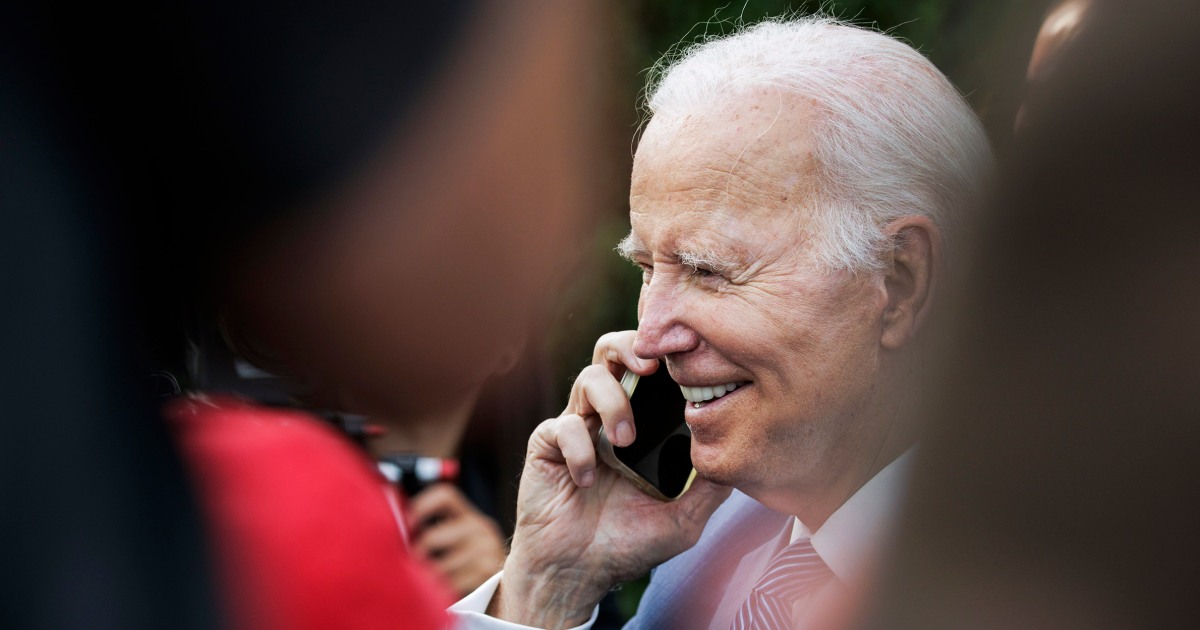- cross-posted to:
- [email protected]
- politics
- cross-posted to:
- [email protected]
- politics
The call, an apparent imitation or digital manipulation of the president’s voice, says, “Voting this Tuesday only enables the Republicans in their quest to elect Donald Trump again.”
A prominent New Hampshire Democrat plans to file a complaint with the state attorney general over an apparent robocall that appears to encourage supporters of President Joe Biden not to vote in Tuesday’s presidential primary.
The voice in the message is familiar — even presidential — as it’s an apparent imitation or digital manipulation of Biden’s voice.
“What a bunch of malarkey,” the voice message begins, echoing a favorite term Biden has uttered before.



Why is it so hard for phone companies to stop this? They explicitly allow unverified numbers to just call whoever on their networks. Is there really no way to stop number spoofing?
The same reason 5-6 model years of Hyundais are worth $0 now
It would be a minuscule cost to the company and they’re not legally required to implement it
Except due to the FCCs complete regulatory capture, the telecoms have now completely ruined voice calls as a form of communication to the extent that nobody even picks up calls on their personal lines anymore.
Remember when you could answer the phone and reasonably expect it would be relevant to your life?
Indeed. I screen every call now and check the voicemails.
What is this referencing?
Hyundai and Kia cut costs by excluding industry standard engine immobilizers in their vehicles.
Most cars have a chip in the key, which is read by the car when you insert it into the keyhole, to verify the key is legit. Even if you cut a new copy of the key, the engine won’t start without that chip. That’s an engine immobilizer. It also prevents people from just brute-forcing the keyway into turning, with something like a screwdriver. Because again, no chip means the car won’t start.
Hyundai and Kia decided to forego these, as a cost cutting measure. And now those Hyundais and Kia’s are virtually worthless (and nearly impossible to insure,) because car thieves know how easy they are to steal. In the past few years, as the methods have gotten posted on places like YouTube and TikTok, anyone with a screwdriver can go steal a Hyundai or Kia. And theft rates have skyrocketed, to the point that some insurance companies are outright refusing to issue policies for them because they know it’ll eventually be stolen.
As for why it was referenced here, my guess is that they were making a parallel about how the technology to prevent spoofed phone numbers already exists. But the companies have decided not to implement them, as a cost-cutting (and anti-competition) measure.
Currently, some phone carriers already offer caller verification. But that only works for internal numbers. For instance, an AT&T caller dialing another AT&T phone. But the companies have refused to cooperate, and allow competitors to access their internal verification systems. So for instance, if an AT&T customer calls a T-Mobile customer, both AT&T and T-Mobile can verify internal calls. But neither company wants to play nice with the other, so they refuse to verify each others’ numbers. So when a spammer spoofs a number, any kind of verification would only be effective if the spammer has the same carrier as the target.
Wooow. Holy shit. Those car makers really fucked up. Those class action suits should have mandates to replace the cars or install immobilizers.
I’m dubious that’s all it is; for example, My '03 S10 has a purely mechanical key. In fact, if you have a GM vehicle with that little “chip” in the root of the blade…note that it’s in a symmetrical key, so it could go in either way, and it’s only got two pins. Because it’s just a resistor. The car’s security system is pretty much just an ohmmeter.
The fact that Hyundai and Kia chose not to include an industry standard anti-theft system, leading to them being piss easy to steal
I have my phone set to block all unknown number calls. I was getting around 40 calls per day.
Blocking spoofing isn’t as simple as you might think. A LOT of legitimate phone traffic uses spoofing for VOIP calling.
In fact, back in 2005 the Madison River Telephone company (CenturyLink) tried blocking outgoing Vonage calls citing the CID spoofing, and the FCC stepped in and required that they allow it. It was the first real Net Neutrality ruling.